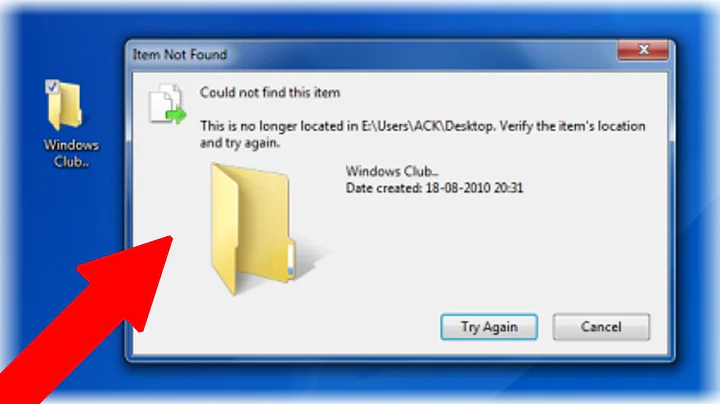What is the fastest way of deleting files in a directory? (Except specific file extension)
Solution 1
If you are using .NET 4 you can benifit the smart way .NET now parallizing your functions. This code is the fasted way to do it. This scales with your numbers of cores on the processor too.
DirectoryInfo di = new DirectoryInfo(yourDir);
var files = di.GetFiles();
files.AsParallel().Where(f => f.Extension != ".zip").ForAll((f) => f.Delete());
Solution 2
By fastest are you asking for the least lines of code or the quickest execution time? Here is a sample using LINQ with a parallel for each loop to delete them quickly.
string[] files = System.IO.Directory.GetFiles("c:\\temp", "*.*", IO.SearchOption.TopDirectoryOnly);
List<string> del = (
from string s in files
where ! (s.EndsWith(".zip"))
select s).ToList();
Parallel.ForEach(del, (string s) => { IO.File.Delete(s); });
Solution 3
At the time of writing this answer none of the previous answers used Directory.EnumerateFiles() which allows you to carry on operations on the list of files while the list is being constructed . Code:
Parallel.ForEach(Directory.EnumerateFiles(path, "*", SearchOption.AllDirectories).AsParallel(), Item =>
{
if(!string.Equals(Path.GetExtension(Item), ".zip",StringComparison.OrdinalIgnoreCase))
File.Delete(Item);
});
as far as I know the performance gain from using AsParallel() shouldn't be significant(if found) in this case however it did make difference in my case.
I compared the time it takes to delete all but .zip files in a list of 4689 files of which 10 were zip files using 1-foreach. 2-parallel foreach. 3-IEnumerable().AsParallel().ForAll. 4-parallel foreach using IEnumerable().AsParallel() as illustrated above. Results:
1-1545
2-1015
3-1103
4-839
the fifth and the last case was a normal foreach using Directory.GetFiles()
5-2266
of course the results weren't conclusive , as far as I know to carry on a proper benchmarking you need to use a ram drive instead of a HDD .
Note:that the performance difference between EnumerateFiles and GetFiles becomes more apparent as the number of files increases.
Solution 4
Here's plain old C#
foreach(string file in Directory.GetFiles(Server.MapPath("~/yourdirectory")))
{
if(Path.GetExtension(file) != ".zip")
{
File.Delete(file);
}
}
And here's LINQ
var files = from f in Directory.GetFiles("")
where Path.GetExtension(f) != ".zip"
select f;
foreach(string file in files)
File.Delete(file);
Related videos on Youtube
GeorgeBoy
Updated on November 13, 2020Comments
-
GeorgeBoy over 3 years
I have seen questions like What is the best way to empty a directory?
But I need to know,
what is the fastest way of deleting all the files found within the directory, except any
.zipfiles found.Smells like linq here... or what?
By saying fastest way, I mean the Fastest execution time.
-
GeorgeBoy over 13 yearsSorry for not mentioning it. I meant the quickest execution time
-
illegal-immigrant over 10 yearsParallel.ForEach. Well, running disk operations (especially HDD operations) in parallel will most likely just slow things down. And "By fastest are you asking for the least lines of code or the quickest execution time?" - it's a really strange definition of "fast" (i mean lines of code). How do lines of code correlate with speed?
-
 Renaud Gauthier almost 9 yearsI'll run a benchmark after work, but I too am pretty sure Parallel will slow things down. Which is unfortunate, by the way, because I love the idea.
Renaud Gauthier almost 9 yearsI'll run a benchmark after work, but I too am pretty sure Parallel will slow things down. Which is unfortunate, by the way, because I love the idea. -
 Marcus Mangelsdorf about 8 yearsAre the timings in ms? Anyway, thank you for actually testing this and documenting the performance differences!!!
Marcus Mangelsdorf about 8 yearsAre the timings in ms? Anyway, thank you for actually testing this and documenting the performance differences!!!










![How to Exclude a File or Folder from Windows Defender Scan In Windows 10 [Tutorial]](https://i.ytimg.com/vi/BonLkFNnO9w/hq720.jpg?sqp=-oaymwEcCNAFEJQDSFXyq4qpAw4IARUAAIhCGAFwAcABBg==&rs=AOn4CLBNL5J-hPKoIwC0PwMkem7oowjKvA)





